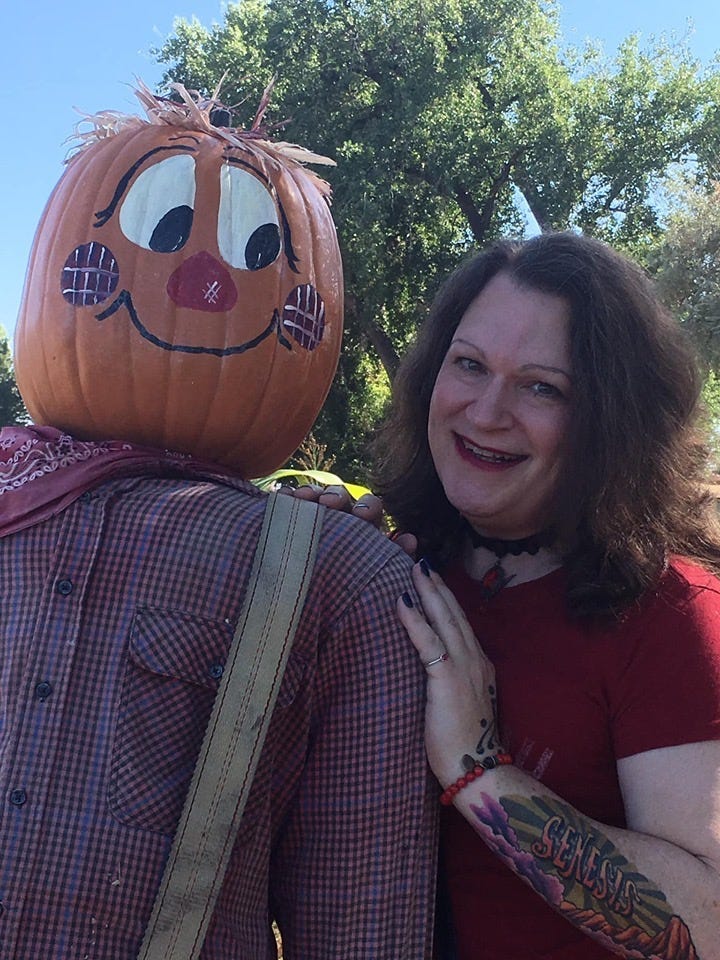JK Rowling’s Shrivelled Self
Not All of Us Transition to Our Better Angel
Not All of Us Transition to Our Better Angel
Novels are not biographies of their author. Yet, as the product of heart/mind/soul, a novel does reflect aspects of its author. While my novels are not me, they wouldn’t be my novels without me. Reading a novel, we look over the shoulder of the writer and see what they don’t see … because they’re too busy writing.
So life imitates art, as J.K. Rowling’s recent 45-paragraph transphobic broadside reveals. We shouldn’t mistake tale-crafting ability for wisdom, for though wisdom be in the writing, it’s not necessarily in the person. Not every Munchian scream, tortured Gollum, hollow-man Kurtz, or opiated Holmes is examined or exorcised before committal to canvas or print. Their unrehearsed rawness comes from a place inside the creator that the creator wasn’t—or might never be—aware of.
The Death Eaters and Voldemort grew out of Rowling’s imagination, but Rowling herself has neither examined nor outgrown their grip on her. For they are her.
Shana Carroll and Phaylen Fairchild have documented J.K. Rowling’s transphobia from its first public hints to Rowling’s June 10th, 2020 hate-filled manifesto that shows Rowling has neither examined nor outgrown the Death Eaters’ and Voldemort’s grip on her.
The close of Deathly Hallows is literature of high order, far from the potboiler stuff of Rowling’s first offerings; in Hallows, Rowling transitioned from a mere storyteller into a writer. But something else of her did not transition. In Hallows, during his afterlife meeting with Harry, Dumbledore notes, “‘That which Voldemort does not value, he takes no trouble to comprehend.’”
making great art doesn’t require understanding that you’re making it. Indeed, comprehending it often prevents it.
Rowling’s June-10th manifesto reveals that she does not comprehend what she wrote in Hallows. That in itself is not a failing—making great art doesn’t require understanding that you’re making it. Indeed, comprehending it often prevents it. In Hallows, the Harry-like part of Rowling wins the duel with her lesser angel—the shrivelled, “naked child, curled on the ground, its skin raw and rough, flayed-looking … shuddering under a seat where it had been left, unwanted.” Harry is
afraid of it. Small and fragile and wounded though it was, he did not want to approach it. Nevertheless he drew slowly nearer, ready to jump back at any moment. Soon he stood near enough to touch it, yet he could not bring himself to do it. He felt like a coward. He ought to comfort it, but it repulsed him.
Something flayed-like in Rowling, as in all of us, repulses. Life, in part, is the transitional process of confronting and admitting our capacity for evil. J.K. Rowling has yet to transition from this Voldemort part of herself:
Harry glanced again at the raw-looking thing that trembled and choked in the shadow beneath the distant chair. “Do not pity the dead, Harry. Pity the living, and, above all, those who live without love. By returning, you may ensure that fewer souls are maimed, fewer families are torn apart.”
Rowling’s diatribe, Twitter posts, and contributions to transphobic causes maim souls and tear apart families, making her resemble Dolores Umbridge, a petty tyrant consumed with sadistic power. To that, Dumbledore says,
“It is a curious thing, Harry, but perhaps those who are best suited to power are those who have never sought it. Those who, like you, have leadership thrust upon them, and take up the mantle because they must, and find to their own surprise that they wear it well.”
Rowling has riches and a worldwide audience, neither of which were thrust upon her but which she pursued, yes, to make her stories heard. She now uses that power in a Death-Eating embrace, as her June-10th manifesto notes:
I’ve only mentioned my past because, like every other human being on this planet, I have a complex backstory, which shapes my fears, my interests and my opinions. I never forget that inner complexity when I’m creating a fictional character and I certainly never forget it when it comes to trans people.
Voldemort, Umbridge, and the Death Eaters never forget those they fear. Rowling misses her own backstory and therein attacks and villainizes the trans community … out of fear—coming from one of the most materially successful writers in history, barricaded inside her castle.
Don’t burn your Harry Potter books. Don’t pity Rowling. She is beyond help, an Azkaban prisoner of her own fictional phobias that, like Voldemort, she refuses to see beyond.
Celebrate those of her readers who’ve transitioned beyond what she pointed to but fears to touch. Those who’ve transitioned beyond where J.K. Rowling won’t now go are, as Dumbledore notes,
“the true master[s] of death, because the true master does not seek to run away from Death. [They] accept that [they] must die, and understand that there are far, far worse things in the living world than dying.”
Deathly Hallows quotations taken from Rowling, J.K.. Harry Potter and the Deathly Hallows. Pottermore Publishing. Kindle Edition.
To learn more about my transition, read my memoir, How to NOT Know You’re Trans or one of my novels!
As always, your respectful comments are appreciated. 🤗






